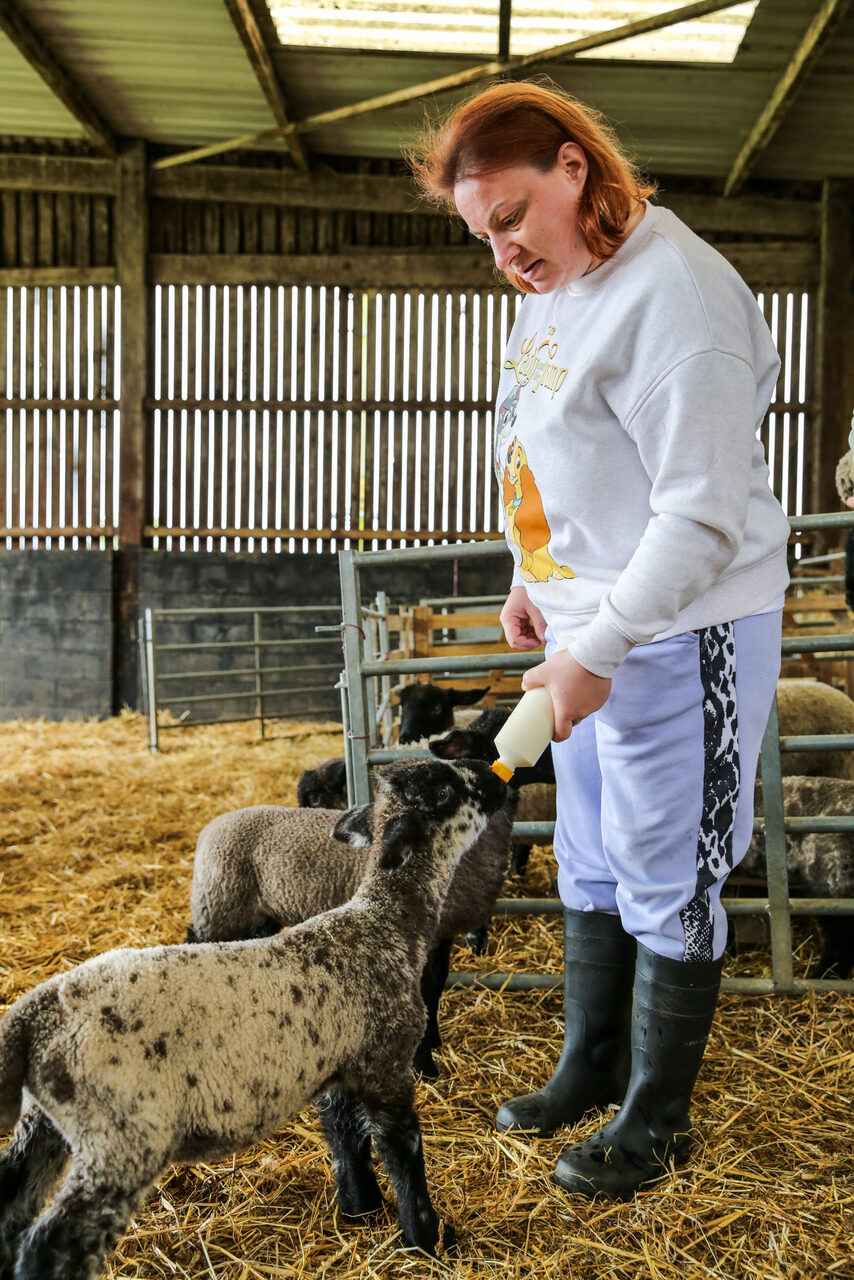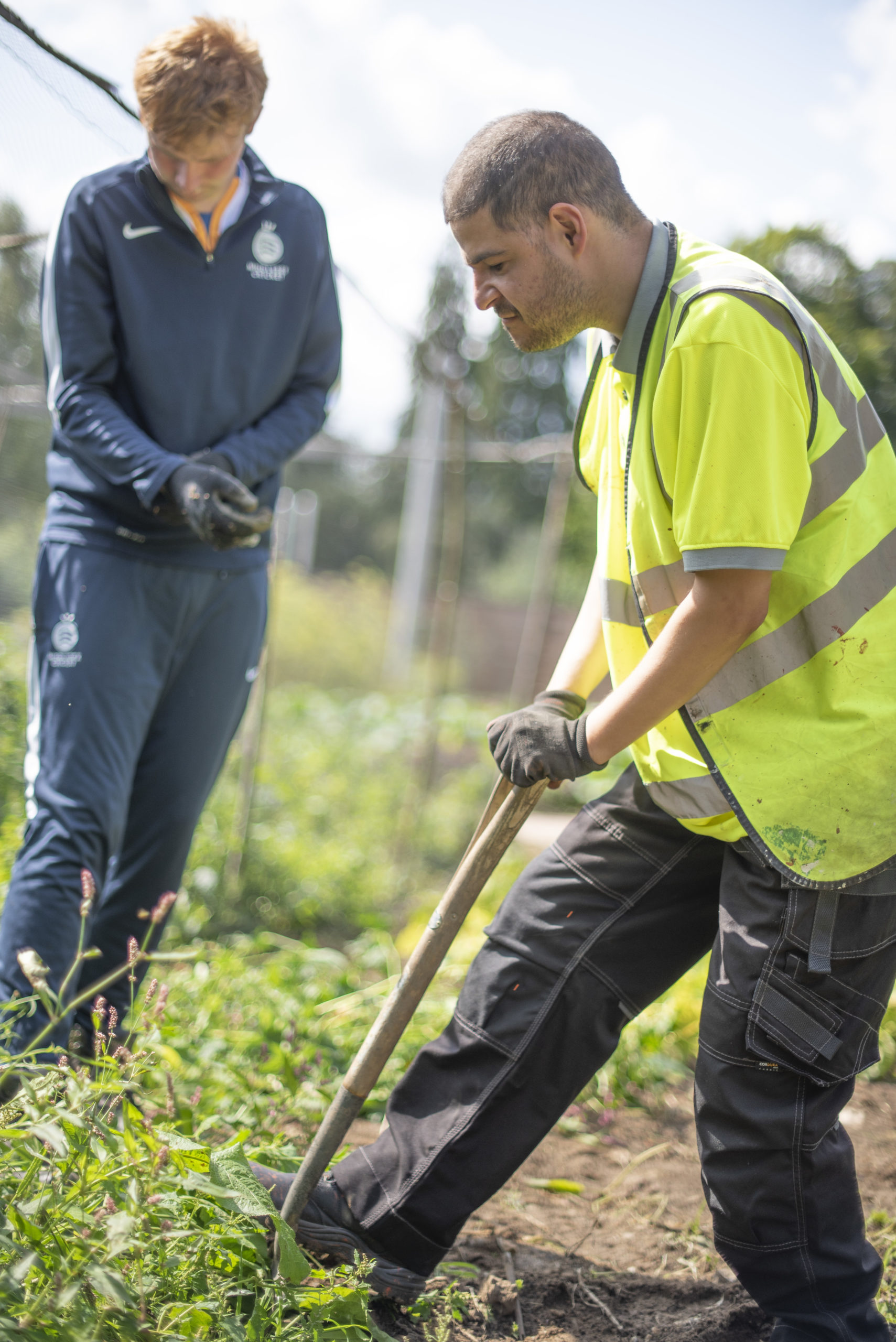Nature leading the way to a life of opportunity
At Camphill Village Trust, we believe that access to nature is not just beneficial – it’s essential. The evidence is clear: nature supports better health, wellbeing, and life outcomes, particularly for adults with learning disabilities and autism, and for people facing mental health problems.
Preventing and tackling mental health problems through nature
Access to nature doesn’t just feel good – it has measurable health benefits. The National Evaluation of the Preventing and Tackling Mental Ill Health through Green Social Prescribing (GSP) Project has shown the powerful impact of nature-based activity on people with mental health problems.
Key findings include:
- Over 8,300 participants with mental health needs took part in nature-based activities and reported improved wellbeing.
- In one site, physical activity levels rose significantly – from 84% of participants being active in the week before, to 95% after taking part in a single nature-based activity.
- Participants' happiness, anxiety levels, and life satisfaction improved dramatically – in many cases, rising to match national averages after engaging with nature.
- The report highlights a need for health services to better embed nature-based providers within mainstream social prescribing.
These findings reinforce what we see every day in our communities: access to nature changes lives.
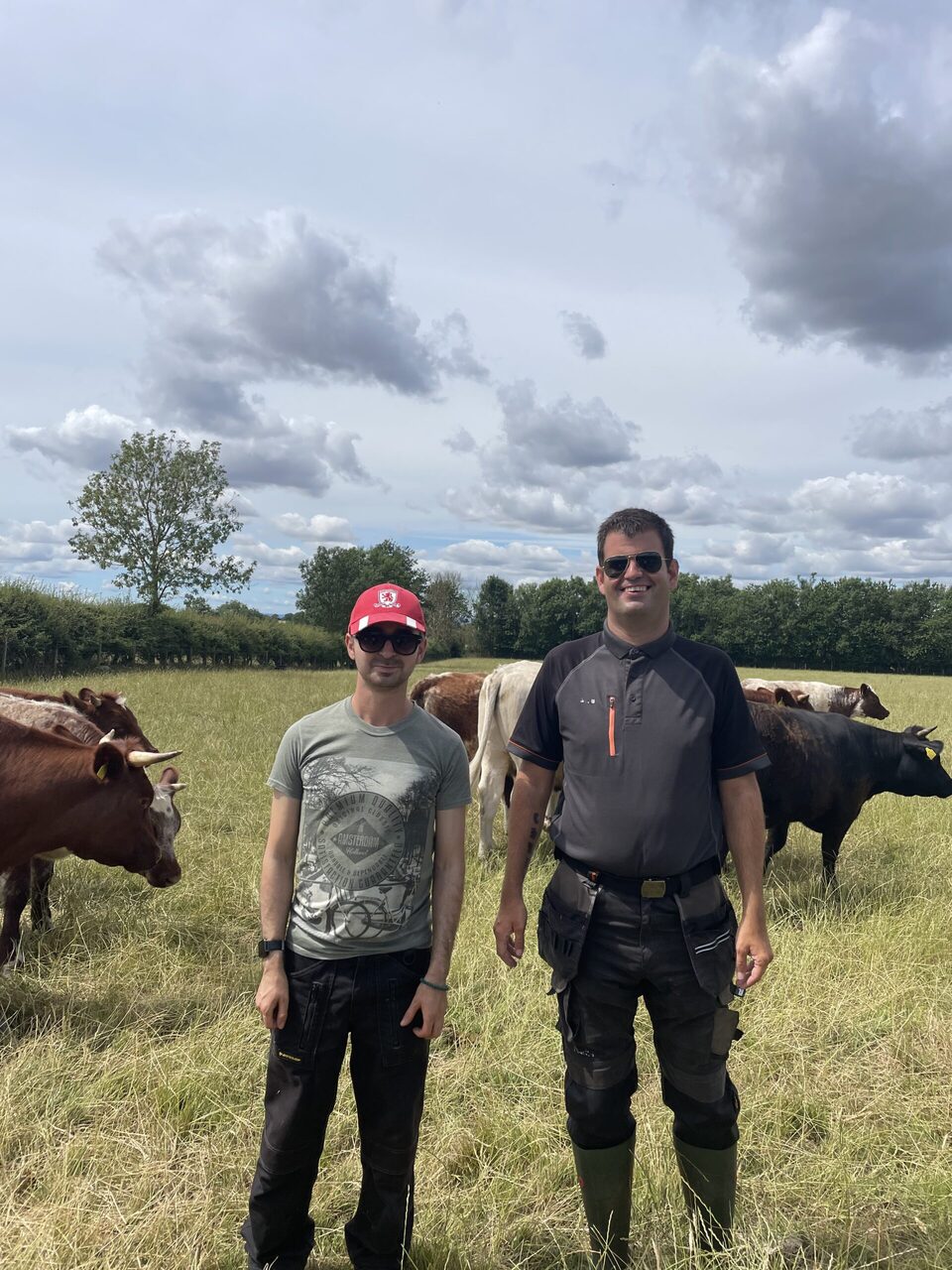
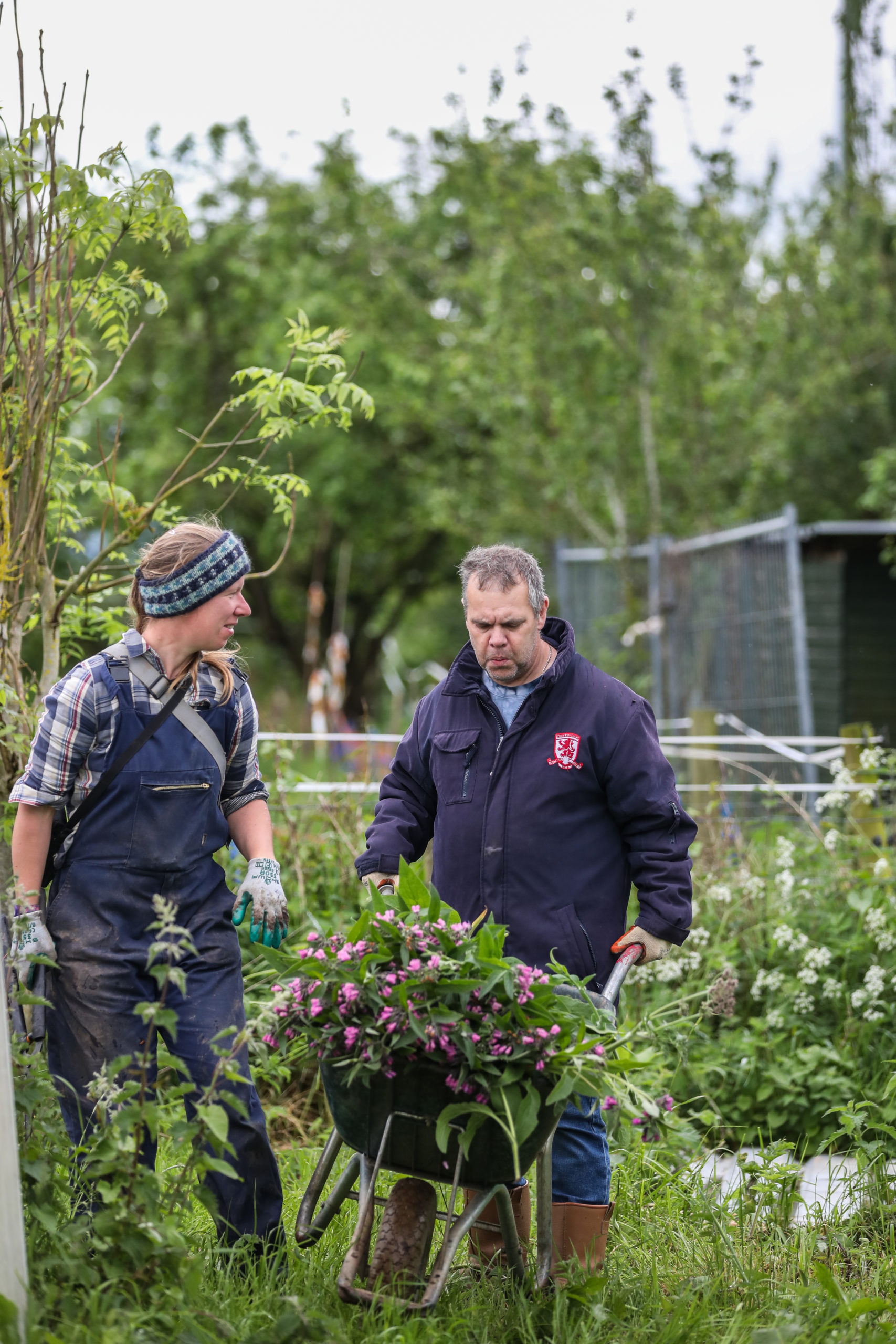
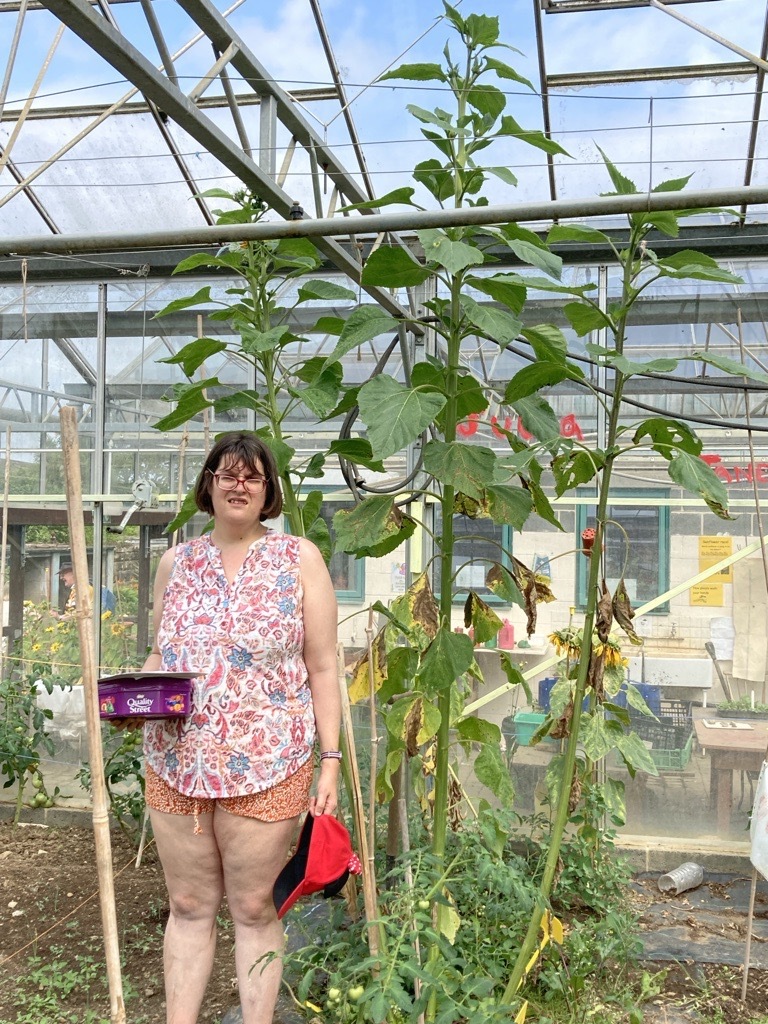
The positive outcomes of being in and around nature and greenery
Numerous studies have shown the positive outcomes of “green exercise”: physical activity in natural settings. One pivotal study from the University of Essex tested over 100 people under controlled conditions, examining how different environments influenced their wellbeing during 20 minutes of treadmill exercise.
Key findings:
- Exercise alone improved blood pressure, self-esteem and mood.
- But pleasant nature and urban scenes produced even greater boosts in self-esteem and mental wellbeing.
- By contrast, unpleasant scenes or no nature at all reduced the positive impact.
This highlights that contact with nature – even visually – enhances the impact of physical activity on our wellbeing.
A broader body of research supports this. Nature-based activities have been shown to:
- Reduce stress, anxiety, and symptoms of depression
- Improve sleep quality, immune response, and heart rate variability
- Increase cognitive functioning, attention span and mental restoration
- Facilitate physical activity by lowering perceived exertion and boosting motivation
- Encourage better nutrition and healthier lifestyle choices
- Build stronger immune systems and reduce the risk of long-term conditions like obesity, diabetes and cardiovascular disease
And importantly, people who are vulnerable or disadvantaged often benefit the most.
Nature doesn’t just benefit individuals in isolation – the social context of nature-based interventions is also key. When people take part in outdoor activities together, they experience stronger social connections, a greater sense of belonging, and improved inclusion.
Being part of a group in a calm, natural setting supports psychological restoration, attentional focus, and emotional safety. Meanwhile, engaging in purposeful, hands-on activities helps people develop new skills, build confidence, take responsibility, and gain a sense of achievement.
It’s this combination of social, emotional, cognitive and physical benefit that makes nature such a powerful tool for support.
The challenges in accessibility and wellbeing for individuals with learning disabilities
Despite nature’s proven benefits, people with learning disabilities often face barriers to access. A lack of funding, accessible opportunities, transport, and awareness means that many are unable to engage in meaningful outdoor activity.
This contributes to: Social isolation and reduced independence, higher rates of obesity, linked to poor access to fresh food and physical activity and limited opportunities to develop life skills and connect with others in a safe, supportive environment.
At Camphill Village Trust, we’re addressing these challenges head-on.
Access to nature
Natural England’s paper, Included outside: Engaging people living with disabilities in nature (2022) highlights the benefits spending time outdoors can have on individuals with learning disabilities,
"Living with disabilities can often entail additional organisation and time on mundane chores, so there can be particular value in the feeling of freedom and sense of getting away from everyday demands that can come from being in natural environments."
This stresses the importance of providing individuals with learning disabilities access to more meaningful opportunities outdoors in nature, which enables people to live active and healthy lives.
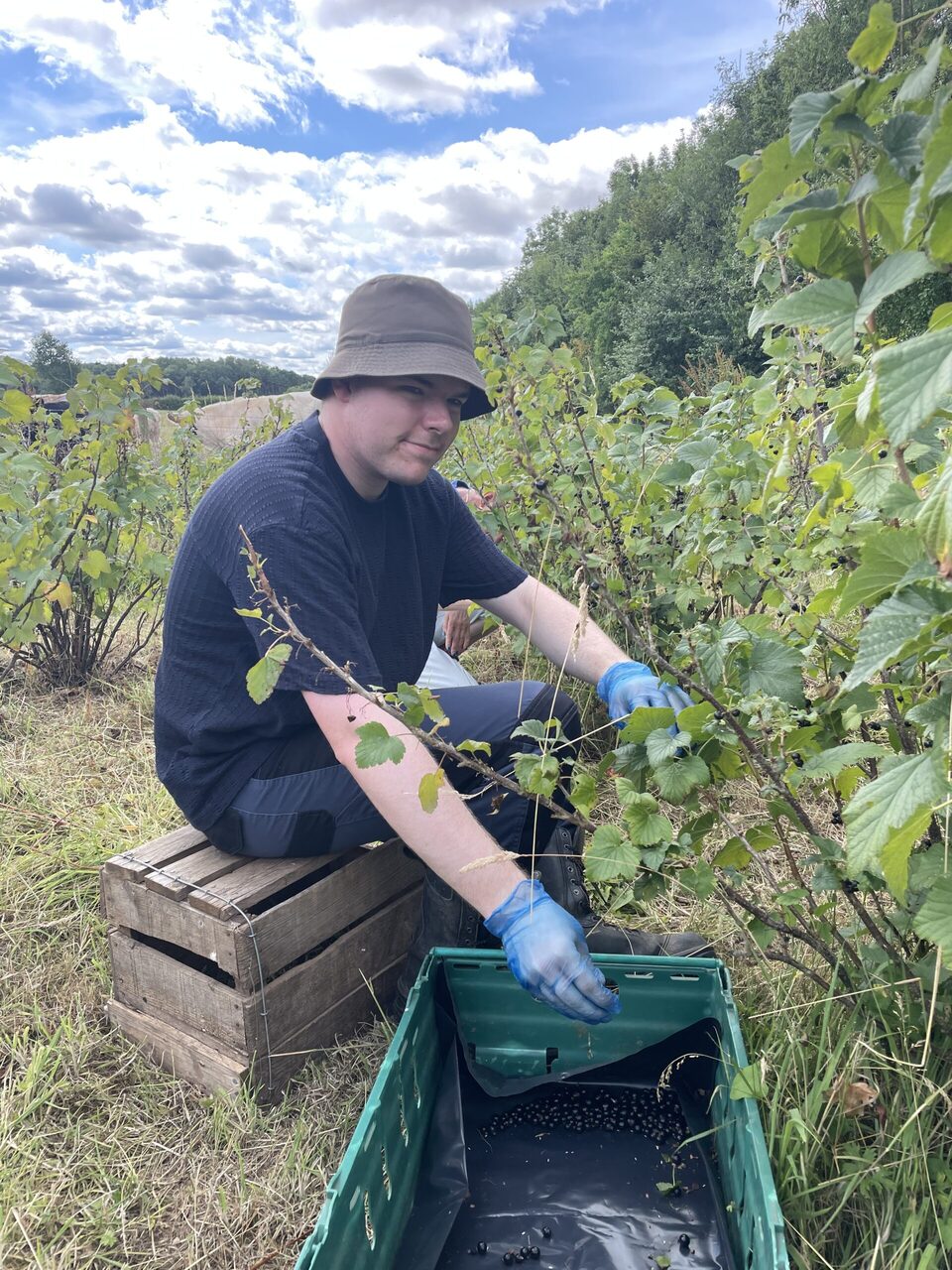
How we are making nature accessible to adults with learning disabilities
Our Nature-based Therapies and Skills Programmes offer meaningful, nature-based activities across our urban and rural communities.
We provide access to:
- Working farms, gardens, woodlands and natural spaces – where people can care for animals, grow food, and take part in seasonal tasks
- Indoor enterprises like cafes, bakeries, woodworking and printing, with many connected to nature through materials, food production or the local landscape
- Creative spaces for nature-based art, crafts, drama and music
- Farm-to-fork opportunities – including food growing, harvesting, baking, processing and customer service in our cafés and shops
We care passionately about nutrition, and our activities support healthier diets, food education, and increased access to fresh produce.
How do people with learning disabilities benefit from nature-based activities?
Nature is a powerful equaliser. Within our Nature-based Therapies and Skills Programmes, people are treated as individuals, their voices are heard, and the outcomes are transformative.
Our participants will experience:
- Increased self-advocacy and independence: More say in their own lives, understanding rights and choices, and needing less support over time.
- Improved health and wellbeing: Greater emotional resilience, better physical health, more movement, healthier eating, and stable weight.
- Boosted confidence and self-esteem: A stronger sense of self, pride in achievement, and increased belief in personal ability.
- Greater social inclusion: Friendships, teamwork, community belonging and enhanced communication skills.
- A sense of purpose and value: Being part of something real, contributing to society, and experiencing meaningful occupation.
- Growth in life and vocational skills: Learning that supports greater independence, work-readiness, and personal progression.
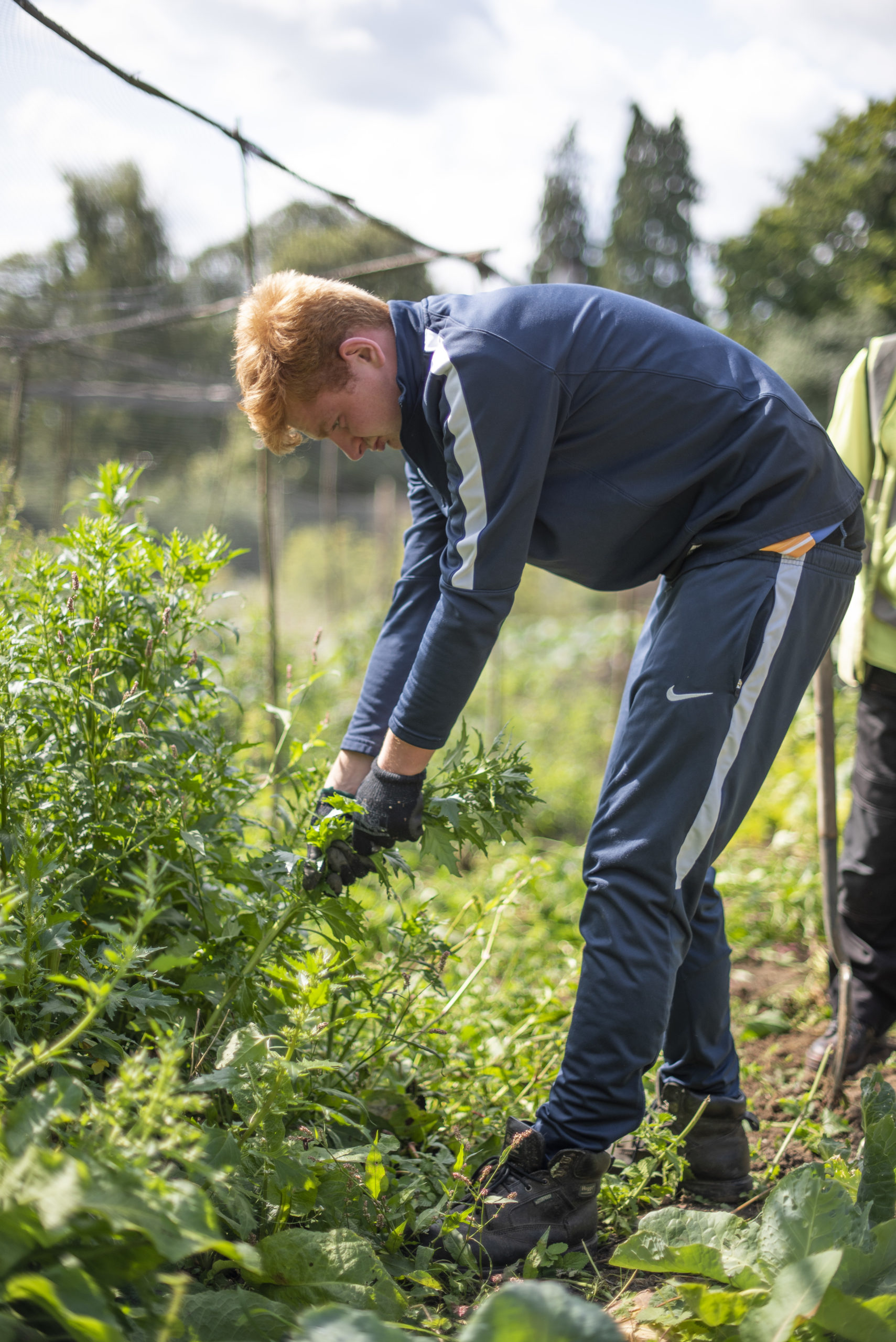
Why nature is central to our support
We don’t see nature as an “extra” – it’s a vital part of our support model. People with learning disabilities and autism face real inequalities, but nature offers a route to inclusion, wellbeing and opportunity.
At Camphill Village Trust, our Nature-based Therapies and Skills Programmes form part of how we re-imagine adult social care – supporting people to thrive, not just survive.

